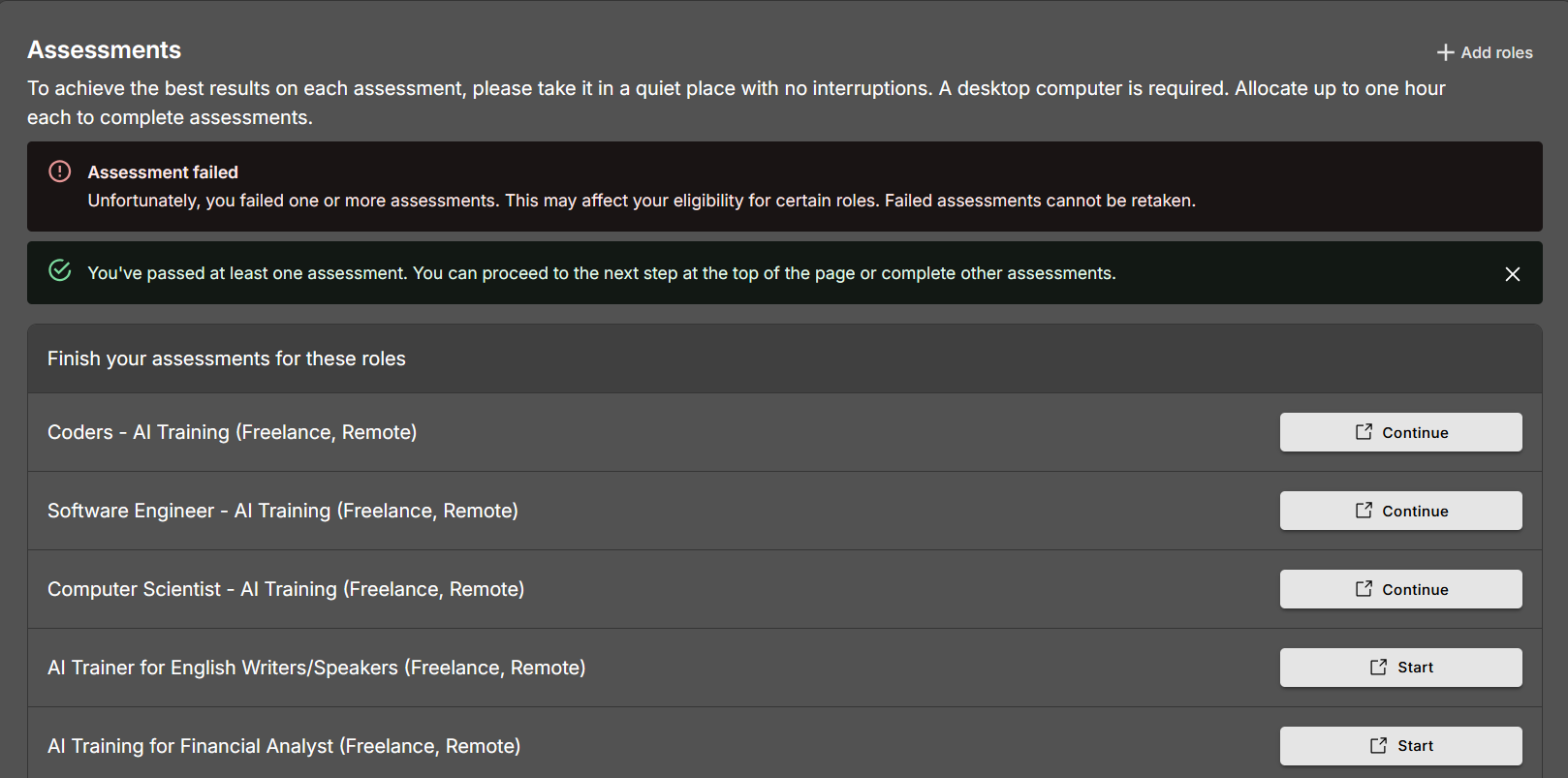If you’ve even done a casual job search recently, you’ve probably noticed the listings. Remote positions, usually several by the same company, with titles like “AI Prompt Writer” or “AI Training Specialist—Medical.”
If you’re like me, these listings made you curious. Are these a scam? And if not, what is it like to work for these companies?
The Training Process
The training process varies the most between these AI training gigs, with the main difference being that some require an assessment before they’ll even onboard you.
It depends on whether you’re signing up for a more generalist or specialized role. They have surprisingly high standards for specialist roles, and some even include video interviews, which are asynchronous but more than I was expecting for a gig like this.
The generalist roles are more what I expected, and they’ll basically take anybody. You get thrown right into the training and onboarding process, which usually varies by project. You get shown a lot of old AI prompts and then what you’re supposed to be doing with them, usually vetting them and ranking the response based on a number of factors.
Again, these factors vary a bit, but usually, you’re given a grading rubric that includes metrics like “accuracy,” “truthfulness,” and even “harmfulness” (which can include everything from the AI suggesting violence to perpetrating stereotypes).
It’s worth noting that while some of these companies pay you for the training and assessment process, others do not.
Once you’re in, the process becomes more streamlined.
After training, you’ll be assigned to a project with a specific goal. This will sometimes result in additional training and sometimes not. Work will be added to your queue, and you can simply take it, look over the prompts assigned to you, and then rate or correct them as needed.
This continues at a steady pace until the work dries up, which happens pretty regularly. This is the biggest drawback of doing these AI training gigs.
Often, projects are short-term, and there can be weeks or even months between one project ending and a new one starting.
That means you can have steady work for a while and suddenly nothing, with no real communication. Some are kind enough to tell you about a week in advance when a project is about to shut down, but most don’t. There will simply be a sudden announcement that the project has concluded, and they’ll shuffle people off to new projects as soon as possible.
To their credit, this does appear to be true. Even for companies I’ve worked with very infrequently, they’ll always move me over to a new project, so there is no expectation that I’ll be working daily or with any regular schedule at all.
This means that the work is always there waiting for you if you need it… so long as there’s an open project you’re eligible for. It’s a good way to make some extra cash when you need it, and they’re usually pretty good about paying you on time, which is more than I can say for some other freelance gigs I’ve done.
Are AI Training Roles Worth It?
I’d say it’s a firm “maybe.” If you have no expectations of regular work, it’s a decent source of extra income for some people.
Unfortunately, the pay tends to be low. I’ve seen a range from $15 to $18 per hour for generalist roles, which is what most people will qualify for. Some places promise wages up to $45 an hour for specialist roles, which, in my experience, is exaggerated. The actual payment per project has always been a lot less, and the specialist projects have work available less frequently than the generalist roles.
Finally, it will come down to your patience for monotonous, repetitive work. Nothing involved in these projects is glamorous, and I also wouldn’t call it very rewarding.
As a source of emergency income? It’s always nice to have the option. There’s not anything to lose by signing up except the time it takes to finish the training courses.
But if you’re looking to make it your primary source of income? It’s not a great option.






